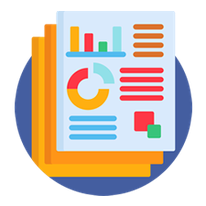Key Features:
No. of pages: 77
Abstract:
The purpose of the study was to examine demographic and socio-economic factors influencing utilization of Maternal Health Services in selected rural communities in Igbo-Etiti Local Government Area in Enugu State, Nigeria.
The study addressed three objectives and tested two hypotheses. A cross-sectional descriptive survey design was used. The study population comprised of 5090 women of childbearing age 15-49 years from which a sample size of 370 women was used. Pretested researcher-developed questionnaire was used for data collection. Data were subjected to descriptive statistics (frequencies, percentages, mean) and test of association using chi-square at 0.05 level of significance. Findings revealed that 251 (71%) of the respondents were between the ages of 21-35 years, 196 (55.6%) had attained secondary level education, 127 (35.9%) had only child. Significant proportions 116 (32.8%) were traders, 54 (15.3%) were students, 42 (11.9%) were civil servants while only 36 (10.2%) were not working. Among those working 128 (36.2%) and 102 (28.8%) had monthly per capita income N10, 000 and N20, 000 naira respectively.
A little lower than half (45.5%) of the respondents’ husbands attained secondary level education and 117 (33.1%) were traders. Use of maternal health services revealed 310 (87.5%) registered for antenatal care in hospitals, 127 (35.9%) registered at first trimester, 184 (51.4%) registered at second trimester and 286 (80.8%) made at least four antenatal care visits. According to place of delivery 263 (74.3%) gave birth in the hospitals while 91 (25.7%) gave birth at traditional birth attendants’ homes. According to levels of use 134 (37.9%) made the best use, 132 (37.3%) good use while 36 (10.2%) poorly utilized maternal health services. There was significance association (P < 0.05) between age, education and use of maternal health services.
There was no significance association (P < 0.05) between parity, socioeconomic status and use of maternal health services. It was concluded that utilization was high though very few registered at first trimester and considerable proportion delivered at traditional birth attendant’s homes. It is recommended that the use of media to disseminate consistent messages promoting early registration (first trimester) for antenatal care and health institution delivery could help discussion of the issue within the communities.
Buy Now
